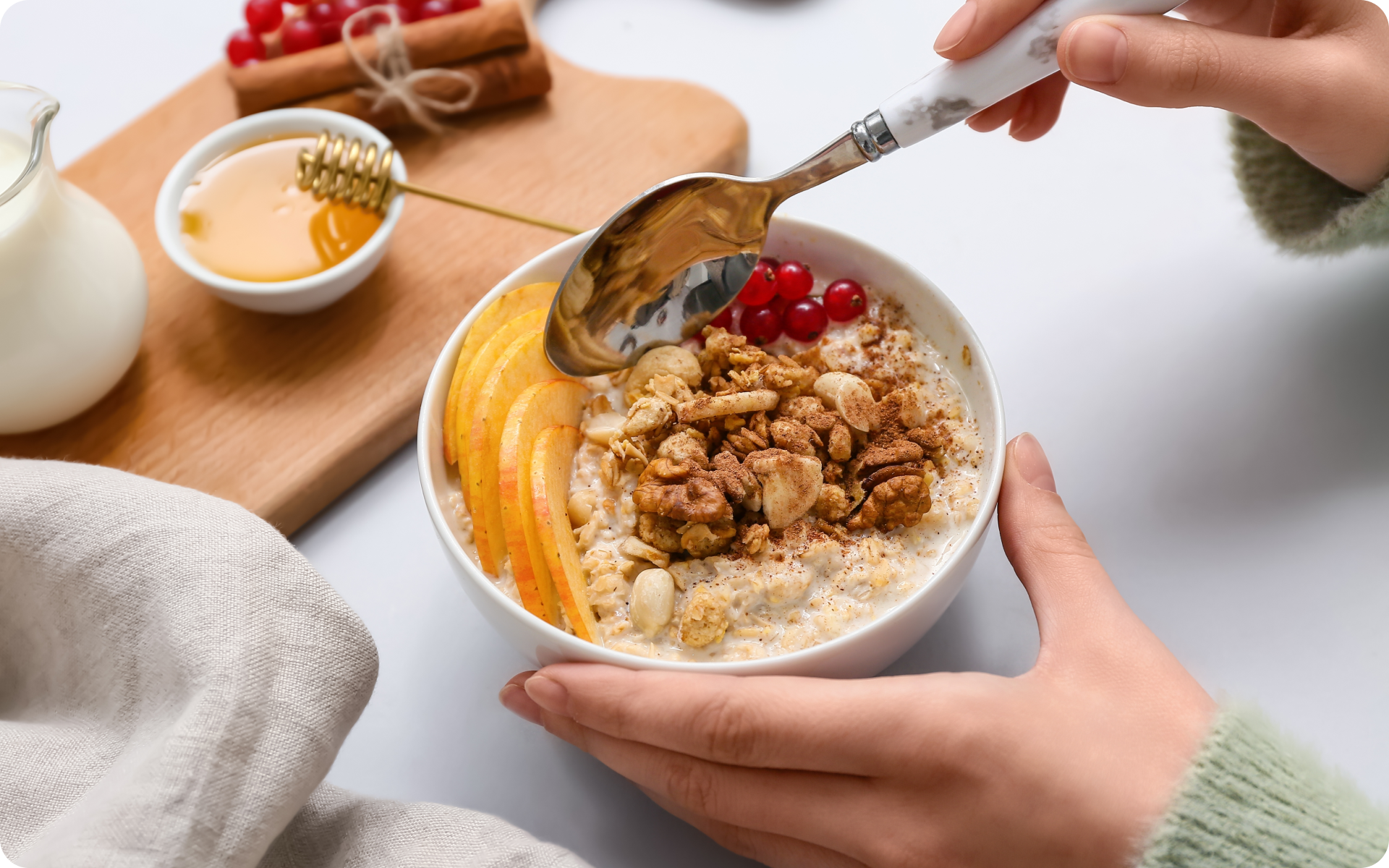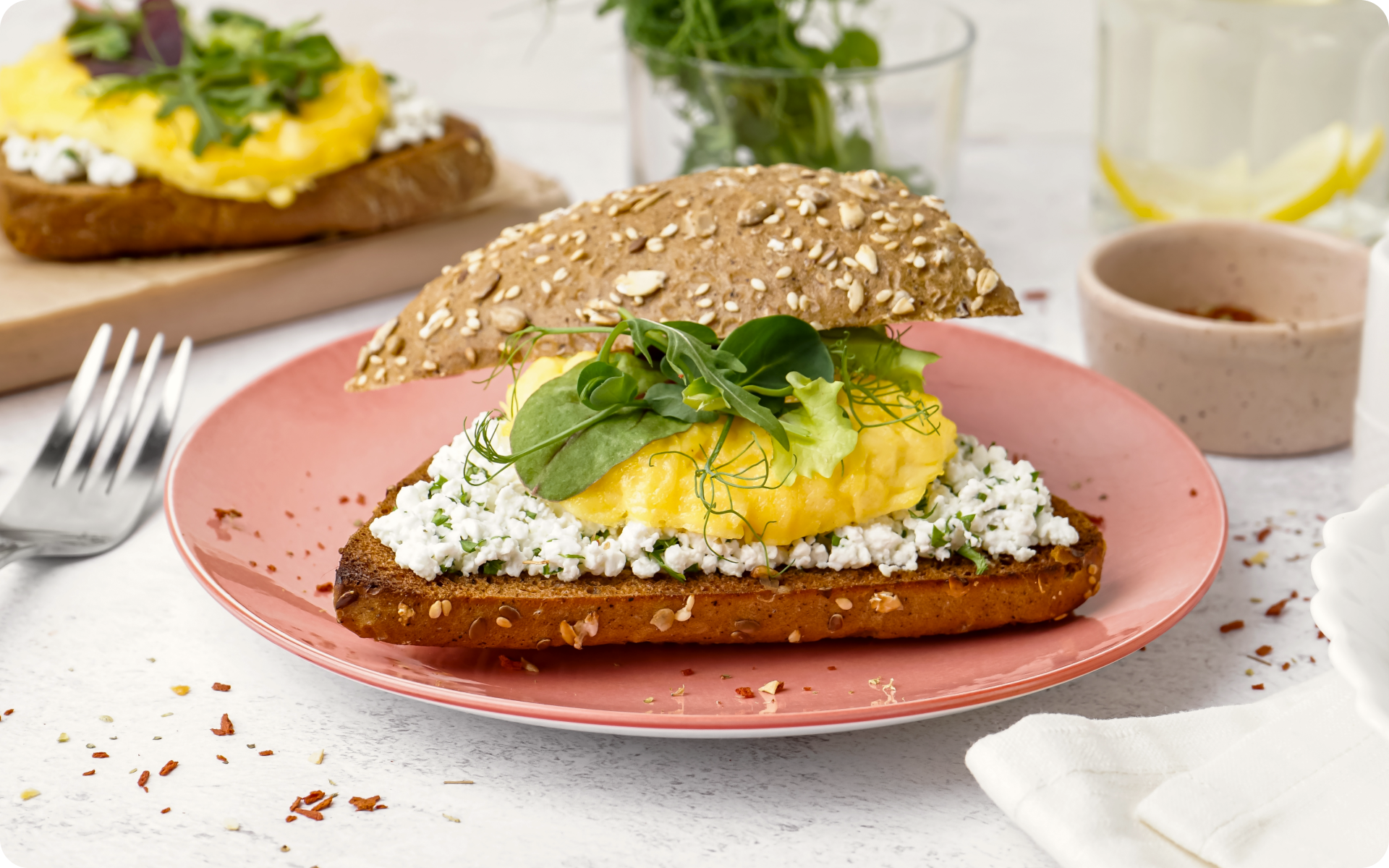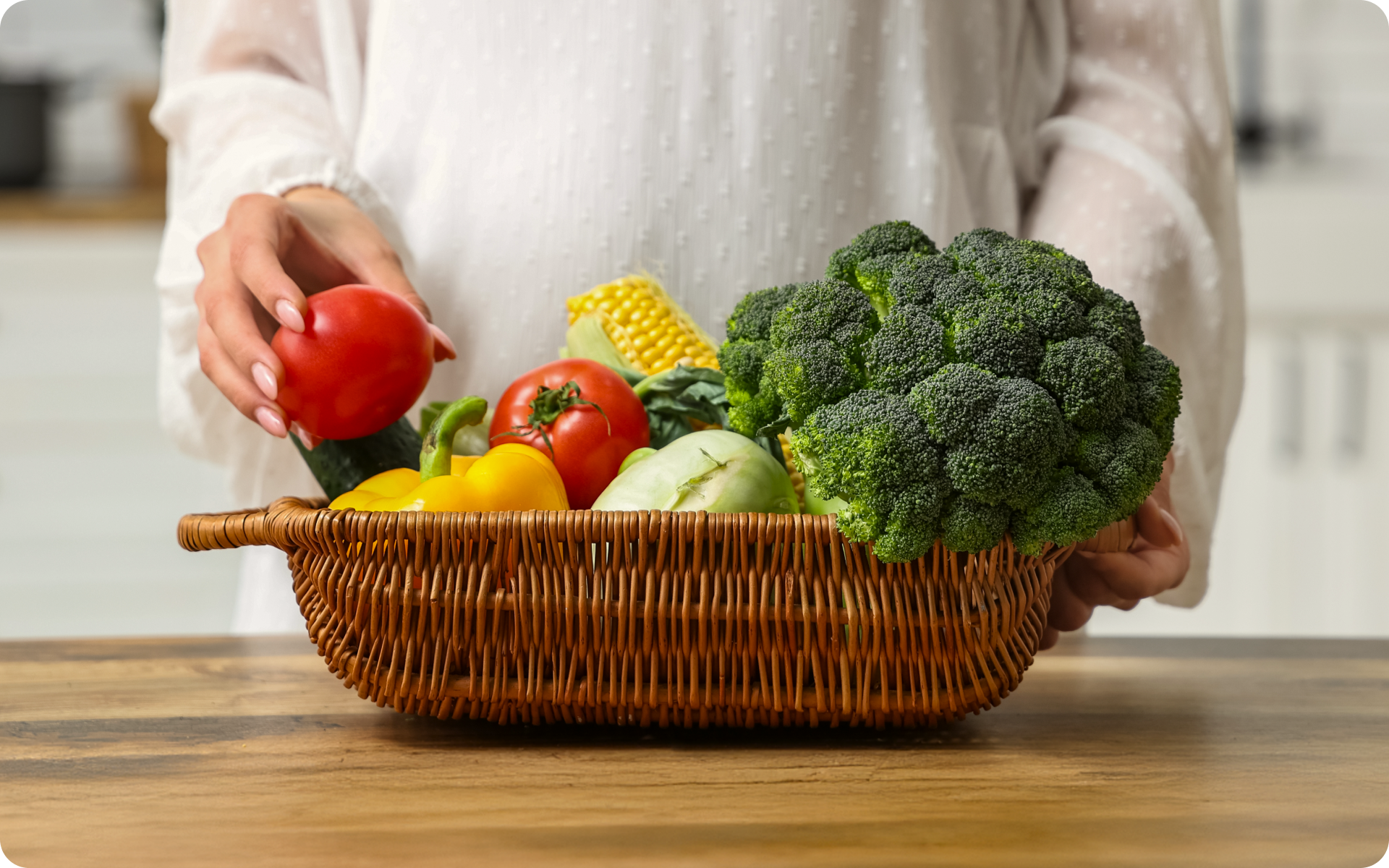1,000-Calorie Meal Plan for Weight Loss
In the ever-evolving landscape of wellness and nutrition, the pursuit of weight loss often takes center stage. Those who are familiar with the weight loss world are aware that the basics of successful and effective slimming include regular exercise and a healthy diet, both of which are conducive to burning more calories than are consumed (1).
Among the many diet plans, the 1,000-calorie meal plan is an emerging approach that is based on the principle of reduced caloric intake, and it can be quite effective in helping you shed pounds. According to dietitians, an average adult requires approximately 2,500 calories (for men) or 2,000 calories (for women) a day, although individual caloric or energy needs vary significantly between individuals (2). You can calculate how many calories you require personally to get more accurate information and improve your calorie-counting process. While no calculation is perfect, valid calculators like this one can account for the major factors that influence energy expenditure. Experts claim that the most sustainable plan is to lose 1-2 pounds (approximately 0.5-1 kg) a week. This pace is considered to be the healthiest, as a more significant calorie deficit leading to losing weight more quickly may lead to various health problems, such as malnutrition, gallstones, and fatigue (4).
1 pound (approximately 0.5 kg) is approximately 3,500 calories (5), so if you stick to a 1,000-calorie meal plan and your normal needs are 2,000-2,500 calories per day, you can burn as much as 7,000-10,500 calories per week, thereby losing between 2 and 3 pounds (1-1.5kg) a week.
But is losing weight using a 1,000-calorie meal plan healthy? What are its benefits and downsides? And what does a 1,000-calorie meal plan look like?
The Basics of a 1,000-Calorie Meal Plan
One of the main rules of the 1,000-calorie meal plan is to consume only 1,000 calories a day. Advocates argue that limiting each meal to 100 calories creates a calorie deficit, leading to significant weight loss. Such a dieting approach is quite restrictive and may lead to relatively rapid weight loss, which is generally not recommended by specialists. For most people, this amount of calories is not enough to obtain sufficient nutrients and support all the body’s functions, and you shouldn’t follow the 1,000-calorie meal plan for longer than a week.
It’s recommended that you avoid highly vigorous physical activity during the dieting period. You may also need to consume multivitamins and mineral supplements while on this diet. You should consult with your doctor before you start taking any supplements or make any changes to your nutritional habits. Highly restrictive or low-calorie diets normally require close supervision by a doctor to ensure you’re safe.
If you wish to free yourself from all the extra pounds that have been weighing you down for way too long, start using the BetterMe: Health Coaching app and overhaul your entire life!
What to Eat and What to Avoid
This diet is low in calories and requires careful meal planning. You should make sure you consume enough essential nutrients to reach the desired goal in the healthiest way possible. It’s recommended that you consume low-calorie foods rich in proteins and fiber as they will help you keep the hunger pangs at bay, and vitamin and mineral-rich foods to prevent nutrient deficiency. Your meals should include fruits (oranges, kiwi, pears, cantaloupes, and berries), vegetables (spinach, celery, zucchini, broccoli, artichokes, cabbage, cucumber, and bell pepper), and low-fat dairy products. Consuming a wide variety of these foods is also important as they’re all rich in different nutrients the body needs and they complement one another.
Include:
- Lean proteins: chicken breast, turkey, fish, tofu, legumes
- Whole grains: quinoa, brown rice, oats, whole-grain bread
- Vegetables: a variety of colorful vegetables to ensure a range of nutrients
- Fruits: berries, apples, citrus fruits
- Healthy fats: olive oil, nuts, seeds
- Dairy or alternatives: Greek yogurt, low-fat cheese, or plant-based alternatives
You should avoid certain fats and oils, such as butter, cheese, cream cheese, ghee, oils (coconut, groundnut, walnut, palm, avocado), and animal fat oil. Dried fruits are also not recommended. The 1,000-calorie diet plan for weight loss even excludes certain fruits, vegetables, and legumes, such as avocado, mango, litchi, custard apple, potato, corn, lima beans, and soybeans. You should also avoid protein-rich foods such as beef, pork, lamb, and tofu. As this diet strictly limits the number of calories you consume, all sugary drinks should be avoided, such as soda, store-bought juices, energy drinks, and sweetened coffee and tea.
Avoid:
- Processed foods: highly processed snacks, sugary treats, and fast food
- Sugary beverages: soda, energy drinks, and some fruit juices
- High-calorie condiments: mayonnaise, cream dressings, and excessive amounts of oil
- Fried foods: foods deep-fried in unhealthy oils
- Highly refined carbohydrates: white bread, white rice, sugary cereals
Read more: 7 Day High Protein Meal Plan for Weight Loss and Muscle Gain
1,000-Calorie Diet Meal Plan
Here’s an example of a seven-day 1,000-calorie diet meal plan that is high in protein. You should remember that this is only an example and may not meet all your nutritional needs. You should consult a healthcare professional or a registered dietitian before starting an 800 to 1,000-calorie diet plan to ensure it’s safe for you. Note that each of the three meals and potentially one of the snacks has a significant source of protein, and that fruits and vegetables are emphasized throughout the day.
Day 1
- Breakfast (250 calories): scrambled eggs (2 eggs) with spinach and cherry tomatoes and whole-grain toast with a small teaspoon of butter
- Morning snack (100 calories): Greek yogurt with a handful of mixed berries
- Lunch (300 calories): grilled chicken breast with ½ cup of quinoa and steamed broccoli and mixed green salad with cherry tomatoes, cucumber, and homemade vinaigrette dressing
- Evening snack (95 calories): apple slices
- Dinner (200 calories): baked salmon with ½ cup of roasted sweet potatoes and sauteed asparagus and ¼ cup of quinoa or brown rice
Day 2
- Breakfast (271 calories): 1 serving of baked banana-nut oatmeal cups and 1 apple (6)
- Morning snack (35 calories): 1 clementine
- Lunch (325 calories): 1 vegetable and hummus sandwich on whole-grain bread
- Evening snack (105 calories): 1 medium banana
- Dinner (468 calories): 1 serving sheet-pan chicken fajita bowl with ½ cup cooked brown rice
Day 3
- Breakfast (287 calories): 1 serving of muesli with raspberries
- Morning snack (35 calories): 1 clementine
- Lunch (344 calories): 1 serving of chipotle-lime cauliflower taco bowl
- Evening snack (32 calories): ½ cup raspberries
- Dinner (521 calories): 1 serving of chicken and cucumber lettuce wrap with peanut sauce
Day 4
- Breakfast (200 calories): ½ cup oatmeal with almond milk and sliced banana
- Morning snack (100 calories): apple slices with a tablespoon of peanut butter
- Lunch (300 calories): 1 cup of lentil soup and a side of mixed greens
- Evening snack (100 calories): ½ cup of cottage cheese with pineapple chunks
- Dinner (200 calories): 4 oz turkey breast with ½ cup of quinoa and sauteed asparagus
Day 5
- Breakfast (285 calories): 1 serving of egg-in-a-hole peppers with salsa (6)
- Lunch (345 calories): 1 serving of curried sweet potato and peanut soup
- Evening snack (220 calories): 1 cup raspberries and 1 oz dark chocolate
- Dinner (371 calories): 1 serving of spinach and artichoke dip pasta
Day 6
- Breakfast (200 calories): smoothie with spinach, banana, almond milk, and protein powder
- Morning snack (100 calories): sliced cucumber with 2 tablespoons of hummus
- Lunch (300 calories): quinoa salad with cherry tomatoes, cucumber, feta cheese, and a light vinaigrette dressing
- Evening snack (100 calories): 1 medium orange
- Dinner (200 calories): 4 oz baked sweet potato wedges and green beans
Day 7
- Breakfast (200 calories): scrambled tofu with spinach, cherry tomatoes, and 1 slice of whole-grain toast
- Morning snack (100 calories): 15-20 walnuts
- Lunch (300 calories): lentil and vegetable stir-fry and ½ cup of brown rice
- Evening snack (100 calories): 2 kiwis, sliced
- Dinner (200 calories): 4 oz grilled shrimp with ½ cup quinoa and roasted zucchini
The BetterMe: Health Coaching app will provide you with a host of fat-frying fitness routines that’ll scare the extra pounds away and turn your body into a masterpiece! Get your life moving in the right direction with BetterMe!
Benefits of a 1,000-Calorie Meal Plan
If it’s followed correctly, a 1,000-calorie meal plan may offer the following benefits:
Effective for weight loss
If you need to shed pounds quickly, the 1,000-calorie meal plan can help. As mentioned at the start of this article, this diet can help you lose 2-3 pounds (1-1.5 kg) a week, depending on individual factors, a rate of weight loss that is quite fast. It can also be effective for people who suffer from obesity and be even more effective at weight loss in these cases. However, you should discuss your diet with a specialist before making any adjustments to it.
Relatively balanced
This diet emphasizes the consumption of vegetables and fruits that are rich in nutrients, including water and fiber, that are an inseparable part of healthy nutrition, as they support numerous essential functions in the body.
Portion control
By restricting calories to a specific number, the plan promotes portion control, which helps you become more aware of your eating habits in both the short and long term and prevents overeating. (7)
Quite affordable
The foods that are allowed on this diet are accessible and affordable. You can find everything you need in any supermarket.
Simple structure
The simplicity of the 1,000-calorie meal plan makes it incredibly easy to follow for both beginners and advanced wellness enthusiasts. Clear guidelines and uncomplicated meal structures lay a strong foundation for success.
Downsides of a 1,000-Calorie Meal Plan
Despite being quite effective for helping you shed pounds, the 1,000-calorie meal plan isn’t the best choice for the following reasons:
Causes a lack of nutrients
Low-calorie diets that only allow you to consume less than 1,200 calories a day may lead to constant hunger, potentially resulting in overeating (3). Another downside of such restrictions is the lack of certain vital nutrients that provide your body with energy. Particularly for someone with very high energy needs, potentially from a larger stature, more muscle mass, higher physical activity levels or daily activities, or an important health consideration, 1,000 calories won’t be sufficient to provide energy for all of their body’s functions. When the diet is followed for a longer period, this will cause nutrient deficiencies and dehydration, which can lead to a lack of energy, hair loss, weaker nails, slower heart rate, and decreased muscle mass.
Slows metabolism
You shouldn’t expect long-term results from this diet as the critical calorie restriction may slow down your metabolism. This can cause rapid weight regain after you return to your normal caloric intake, as it will be easier to put your body in a caloric surplus.
Doesn’t support intense exercising
This nutrition plan isn’t for everyone. It may work quite well for women who have a small frame, as their bodies generally require fewer calories. However, for men and those whose routine involves vigorous exercise, this diet isn’t the best choice, as higher energy needs mean that 1,000 calories won’t be enough to support all of your body’s functions.
Emotional and mental strain
Constantly adhering to a strict calorie limit may create an unhealthy relationship with food, which can lead to feelings of guilt, anxiety, or failure if you deviate from the plan (7).
Fatigue and weakness
A 1,000-calorie diet may not provide enough energy for daily activities, which can lead to fatigue, weakness, and decreased well-being.
Muscle loss
Insufficient calorie intake can also result in the loss of lean muscle mass, particularly when physical activity is limited, which will have a negative impact on your overall body composition and strength.
Read more: The Ultimate Lazy Girl Meal Plan: Eat Smart, Not Hard
FAQs
Is it unhealthy to eat only 1,000 calories?
While a 1,000-calorie meal plan can cause rapid weight loss, this is generally considered to be too low for most individuals to meet their nutritional needs sustainably. Extended periods of a low-calorie diet can cause nutrient deficiencies, metabolic slowdown, and other issues.
How much weight can you lose by eating 1,000 calories a day?
While weight loss can vary among individuals, following a 1,000-calorie meal plan can lead to a loss of 2 to 3 pounds (1-1.5kg) per week. This estimate is based on the principle that 1 pound is roughly equivalent to 3,500 calories and does depend upon the individual’s calorie expenditure.
What are the benefits of a 1,000-calorie meal plan?
Benefits include effective weight loss, relatively balanced nutrition that emphasizes fruits and vegetables, portion control awareness, affordability of recommended foods, and the simple structure of the plan for ease of adherence.
Is 800 calories a day enough?
Consuming only 800 calories a day is generally considered extremely low and may result in nutrient deficiencies, fatigue, and other health issues. It is advisable to consult a doctor before starting such a low-calorie diet. For the vast majority of people, 800 calories a day isn’t close to enough to sustain all body functions, and a larger number of daily calories can still promote a calorie deficit and weight loss.
Which foods burn fat?
Certain foods may help with fat burning, including lean proteins such as chicken and fish, which are conducive to satiety, high-fiber foods such as vegetables and whole grains, which promote fullness, and those with metabolism-spiking properties such as green tea, chili peppers, and lean dairy products.
Does a 1,000-calorie meal plan support intense exercising?
No, a 1,000-calorie meal isn’t suitable for individuals who engage in strenuous exercise. The low calorie intake won’t provide enough energy for intense physical activity, which can lead to fatigue and weakness.
What are the potential downsides of a 1,000-calorie meal plan?
Downsides can include nutrient deficiencies, metabolic slowdown, emotional and mental strain, fatigue, weakness, and the risk of muscle loss. Constant adherence to a strict calorie limit may also create an unhealthy relationship with food.
Can I do the 1,000-calorie meal plan as a vegetarian?
Vegetarians can adopt the 1,000-calorie diet by focusing on plant-based proteins, whole grains, and colorful vegetables to meet their nutritional needs. Consult a professional for personalized guidance and to monitor your health.
The Bottom Line
Many people want to lose weight as quickly as possible and they sometimes resort to different unhealthy methods, such as starvation and very low-calorie diets. However, rapid weight loss isn’t sustainable and may have a lot of negative consequences. The 1,000-calorie meal plan is quite restrictive, potentially cutting your required daily caloric intake in half. You shouldn’t follow this diet for any longer than a week. It promises to help you slim down quite quickly, but it may not be for everyone. Those who regularly perform vigorous physical activity should steer clear of this nutrition plan and it doesn’t provide adequate overall calories for the majority of men. If you’re determined to start following this dietary plan, please consult your doctor first.
DISCLAIMER:
This article is intended for general informational purposes only and does not serve to address individual circumstances. It is not a substitute for professional advice or help and should not be relied on for making any kind of decision-making. Any action taken as a direct or indirect result of the information in this article is entirely at your own risk and is your sole responsibility.
BetterMe, its content staff, and its medical advisors accept no responsibility for inaccuracies, errors, misstatements, inconsistencies, or omissions and specifically disclaim any liability, loss or risk, personal, professional or otherwise, which may be incurred as a consequence, directly or indirectly, of the use and/or application of any content.
You should always seek the advice of your physician or other qualified health provider with any questions you may have regarding a medical condition or your specific situation. Never disregard professional medical advice or delay seeking it because of BetterMe content. If you suspect or think you may have a medical emergency, call your doctor.
SOURCES:
- Counting calories: Get back to weight-loss basics (2020, mayoclinic.org)
- Cut down on your calories (2018, nhs.uk)
- Getting past a weight-loss plateau (2020, mayoclinic.org)
- Should you lose weight fast? (2019, nhs.uk)
- Why do doctors recommend a slow rate of weight loss? What’s wrong with fast weight loss? (2020, mayoclinic.org)
- 7-Day Diet Meal Plan to Lose Weight: 1,200 Calories (2023, eatingwell.com)
- What Is a Low-Calorie Diet? The Pros and Cons of the Popular Meal Plan for Weight Loss (2023, prevention.com)








